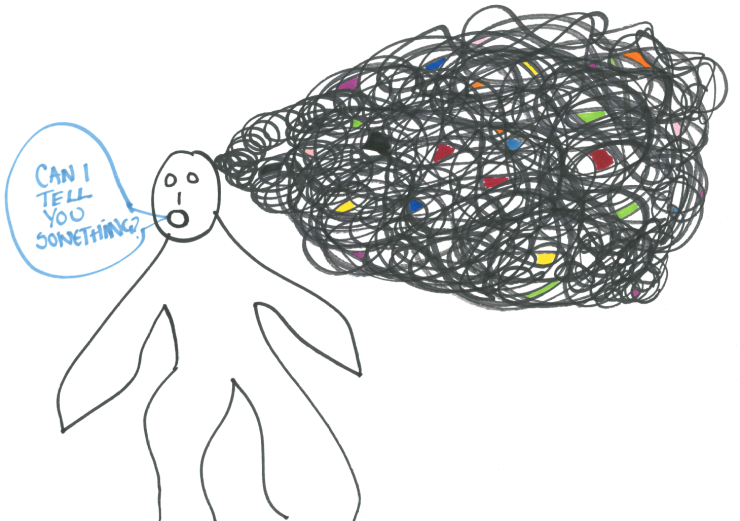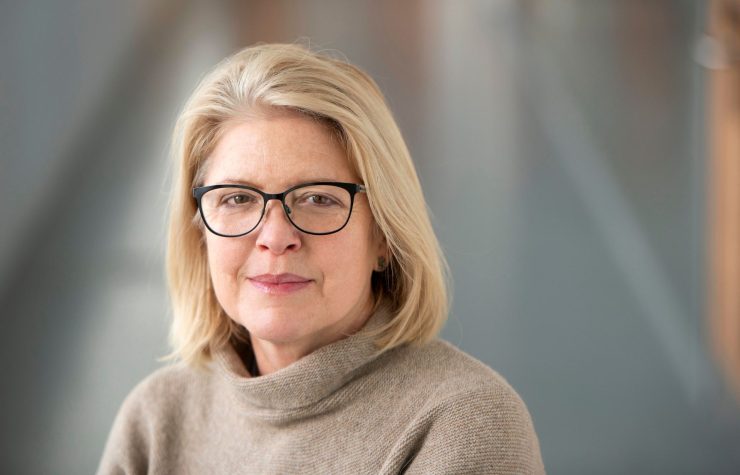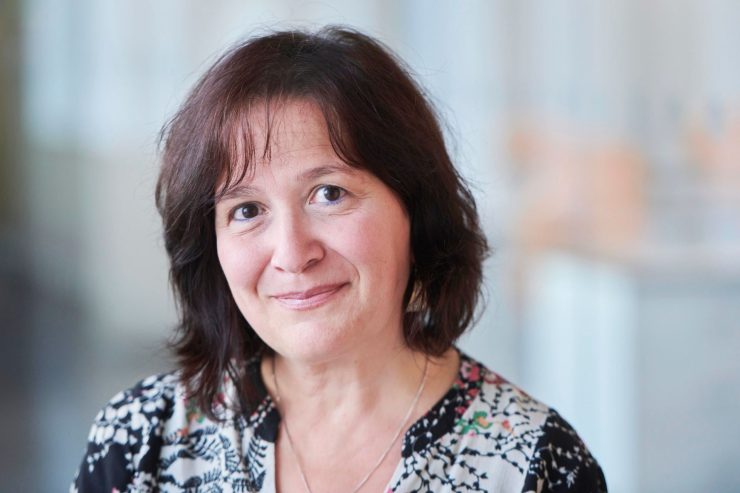Dr Lorna Linch‘s fascinating article published in The Conversation explores the devastating effects that melting icebergs have on raising global sea levels and crushing life on the sea floor.
Category: Meet the team
Brighton research reveals hidden sexual abuse of men and barriers to seeking support
University of Brighton researchers have investigated what prevents men reporting incidents of unwanted sexual contact and seeking support in new report.
Exploring this overlooked area of sexual abuse, the MUSE (Men’s Unwanted Sexual Experiences) project uncovered not just the extent of the problem but the reluctance of many victims to report incidents through formal routes – such as the police or a GP – as well as the challenges of seeking informal support from family and friends. Research revealed that a key barrier was the perception held by many that unwanted sexual experiences happen to and impact women, and not men.
Dr Carl Bonner-Thompson, senior lecturer at the University of Brighton’s School of Applied Sciences, is one of the researchers behind the project in collaboration with the Male Survivors Partnership and Mankind UK. Alongside University of Brighton colleagues Dr Kirsty McGregor and Dr Jason Preston, Dr Bonner-Thompson interviewed a number of men in both the south-east and north-east of England as part of the project.



Research into marine littering from abandoned fibreglass boats
Steady progress is being made on a collaborative community project steered by the University of Brighton. The research – titled Protecting inland coastal waters through innovative citizen science: participatory action-research on end-of-life fibreglass boats – is evidencing end of life and abandoned boats in and around the Chichester Harbour environs. Led by aquatic ecotoxicologist Dr Corina Ciocan and community water resources practitioner Dr Mary Gearey the aim of the research is to document marine littering from fibreglass boats in poor repair.
Continue reading “Research into marine littering from abandoned fibreglass boats”Winter Skills in the Scottish Highlands
Dr Lorna Linch, Principal Lecturer in Earth Science and expert in all things icy at the University of Brighton, has taken part in a 5-day Winter Skills training course in the Scottish Highlands. The aim of the course is to learn and develop core winter skills required for mountain walking under winter conditions whilst undertaking ascents of the mountains in and around the Cairngorms.
Continue reading “Winter Skills in the Scottish Highlands“New research centre puts Brighton at cutting edge of the fight against disease
A new UK hub for the development of new and innovative ways to prevent, diagnose and treat disease has opened its doors at the University of Brighton.
The Centre for Precision Health and Translational Medicine brings together experts from a range of fields including biomedicine, engineering, mathematics, computer science and social science to develop new approaches to healthcare. Using the latest technology and techniques such as genome editing and stem cell modification, the centre aims to advance the delivery of personalised, proactive and predictive healthcare, tailored to the needs of individual patients.
Continue reading “New research centre puts Brighton at cutting edge of the fight against disease“Dr Louise MacKenzie
Dr Louise MacKenzie is course leader for Biomedical Science BSc(Hons), Biomedical Science MSci and Biomedical Science BSc(Hons) (with integrated foundation year).
 Tell us about the subject areas you teach at undergraduate level?
Tell us about the subject areas you teach at undergraduate level?
I teach on the Biomedical Science course, which covers human biology, pathophysiology and diagnostics used to help guide NHS hospitals to treat patients. The areas that I teach on are mostly the biochemistry and pharmacology aspects that help towards your understanding of Biochemistry and Blood Sciences.
What are some examples of activities that students in your subject area participate in during their studies?
A great deal of time is spent learning laboratory skills. The practical’s cover a great deal of topics, and its an opportunity to put theory into practice, and get to experience what it is like to work in a laboratory environment.
We have great contacts at the local hospital, and you will have guest speakers come and talk about Biomedicine from a range of backgrounds. Continue reading “Dr Louise MacKenzie”
Meet Professor James Ebdon
I am an Environmental Microbiologist interested in the role of water in the spread and control of water-related diseases. I’m particularly interested in how we can protect human health and aquatic environments.
What drew you to teaching your subject?
I first became interested in water pollution during my undergraduate degree at the University of Brighton, nearly 30 years ago. I was fortunate to be taught by an inspirational lecturer (Prof Huw Taylor) who got us investigating the impact of agriculture on local river water quality. This involved fieldwork at a nearby agricultural college and laboratory testing back on campus. From this moment I never looked back, and to this day I thoroughly enjoy the combination of fieldwork and lab-work. Only now I get to lead fieldwork activities and lecture about the joys of conducting environmental research in a range of challenging settings.
How do you combine teaching with your professional life/work in the field?
Throughout my teaching career I have been heavily involved with international research projects, conducting fieldwork in Malawi, India, Nepal, Brazil, Vietnam, and Hawaii (funded by UNICEF, Bill & Melinda Gates Foundation, British Council). This has allowed me to bring in contemporary, real-world case material into my teaching on modules such as Global Environmental Challenges, Water, Sanitation and Health and to develop dissertations with my students focussed on addressing pressing environmental challenges. This way students get to engage with and benefit from cutting-edge applied research, long before it has even been reported in leading international scientific journals.
Continue reading “Meet Professor James Ebdon”Meet Dr Corina Ciocan
A marine biologist, Corina’s expertise is in functional ecotoxicology, focusing on biological responses of marine organisms to environmental stressors.
What drew you to teaching your subject?
I always lived by the ocean and I was absolutely fascinated by the marine environment. After working for more than 25 years in the research sector (in various Marine Research institutes and University groups) decided it’s a good time to bring my research into the class room and give the students the chance to have a very hands on experience of the marine exploration.
How do you combine teaching with your professional life/ work in the field?
I like to teach Marine Biology in ways that place the experiment and practice at the centre of everything I explain, for there can be no successful teaching without creating an active learning environment.
Continue reading “Meet Dr Corina Ciocan”Dr Paul Gilchrist
Dr Paul Gilchrist teaches across our geography undergraduate courses.
 Tell us about the subject area(s) you teach at undergraduate level?
Tell us about the subject area(s) you teach at undergraduate level?
I lead the research methodology aspect of the undergraduate curriculum, convening the second-year Research and Field Skills module which provides training on how to undertake research and design a dissertation project which students will complete in their final year. I am also module leader for Cities and Social Change, an optional first-year module which covers urban geography. I have developed a whole suite of day trips around Brighton and to coastal towns around Sussex to help students put their learning into context. My particular favourite is the trip we make in the spring to Bexhill-on-Sea where we look at the juxtaposition of Oriental and Modernist architecture and investigate its contribution to the town’s heritage tourism strategies. Continue reading “Dr Paul Gilchrist”
Meet Dr Nadia Terrazzini
Nadia trained at the National Institute for the Study and the Cure of Cancer in Milan (Italy) and has since worked on a variety of immunology research projects spanning from cancer gene therapy to DNA vaccines, to immunosenescence. She is a member of the Centre for Stress and Age-Related Disease (STRAND), the Centre for Regenerative Medicine and Devices and the Brighton and Sussex Cancer Research Network.
Dr Nadia Terrazzini is the course leader for Biological Sciences BSc(Hons), Biological Sciences MSci and Biological Sciences BSc(Hons) (with integrated foundation year).
The way I like to teach
My professional field of expertise is Immunology and I teach it at undergraduate and postgraduate level. I am very passionate about promoting the understanding of Immunology to students, who often find this subject very complex. Enhancing its accessibility is a priority in my work. To foster engagement, I try to introduce an element of fun in my teaching and I strive to keep my lectures student-centred and highly interactive, including everyday analogies (e.g. comparing the working of the immune system to a football match), story-telling and animated PowerPoint diagrams or animations.
I also use online game-based learning platforms such as Kahoot and Nearpod to make complex immunology mechanisms and concepts more approachable and easier to visualise. Students engage with the teaching using their laptop/tablets, so that I can introduce questions, polls and videos, pace the lecture and create breaks that give students time to reflect on the learning and work with peers in small groups. I also include examples of experimental data in my presentations and I design assessments to test the students’ ability to understand and interpret scientific data presented in literature. This supports students’ professional development as scientists and ultimately their employability.
Continue reading “Meet Dr Nadia Terrazzini”






